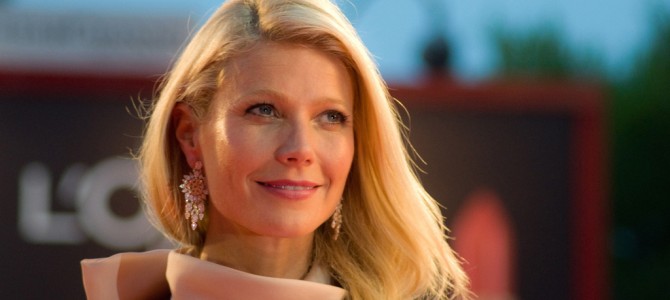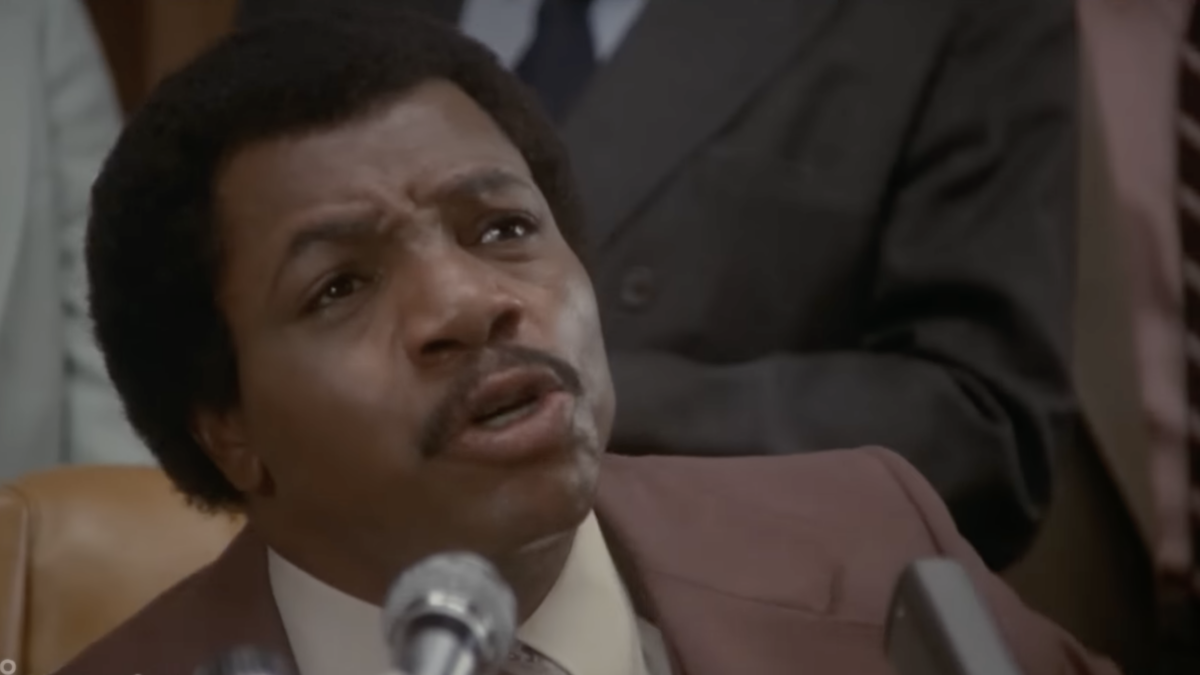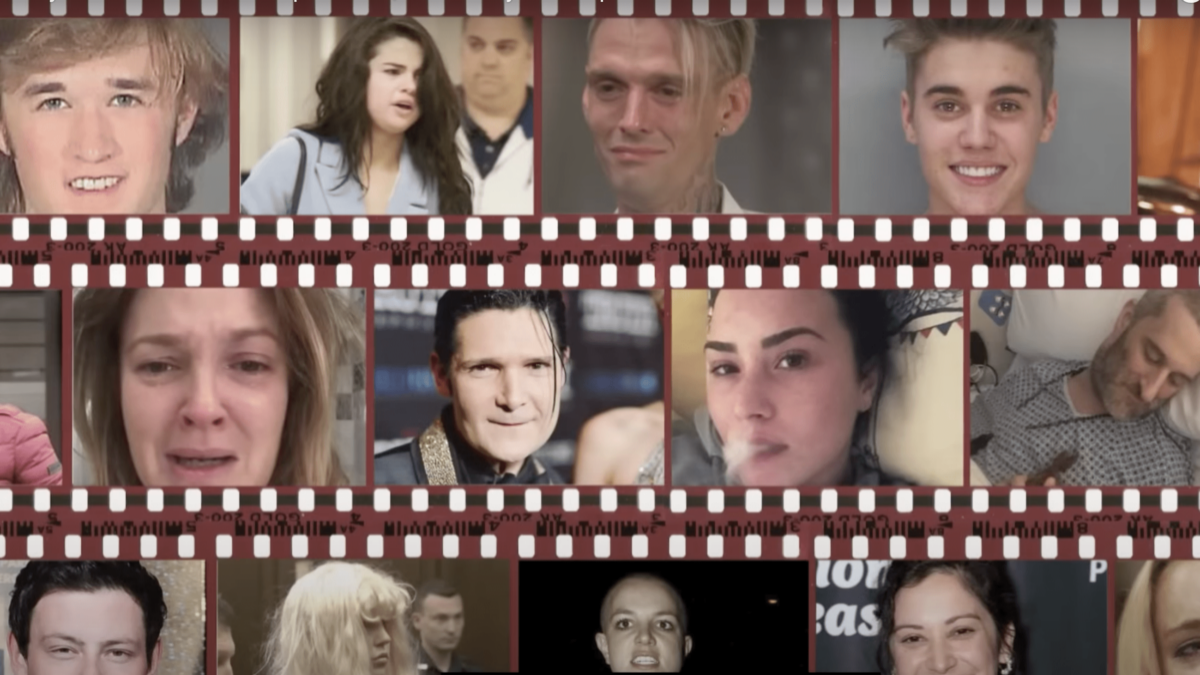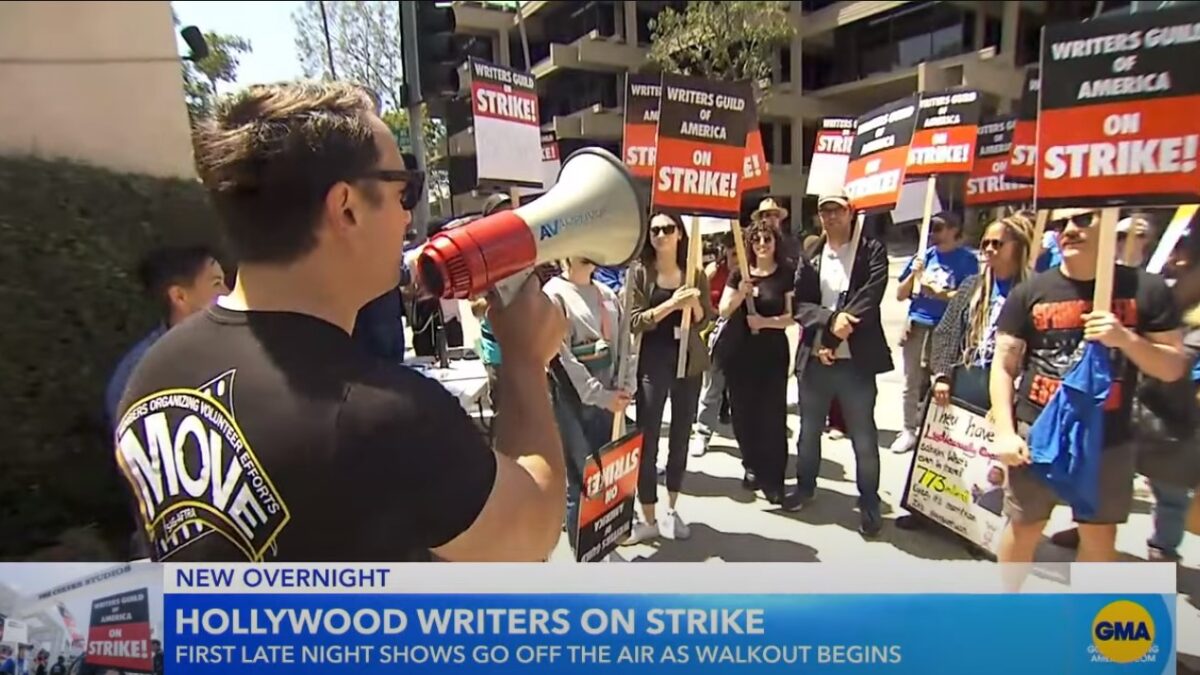
I had a hard time putting down Cooper Lawrence’s new book, “Celebritocracy: The Misguided Agenda of Celebrity Politics in Postmodern Democracy.” It’s an easy read, not only because of Lawrence’s digestible writing style, but also because her research offers a clear framework for understanding Hollywood’s perennial election-year pivot to politics.
Of course, it’s less of a pivot and more of a permanent condition these days. Celebrities from every genre of the entertainment industry—sports, music, social media—seem convinced their political opinions are worth sharing, lest fans mistake their silence for complicity with Trumpism. (See: Taylor Swift.)
The Democratic Party rotated through a slate of high-profile celebrity hosts each night of its convention. When the Joe Biden campaign named Kamala Harris to the ticket, Hollywood gushed with rave reviews for its home-state senator.
The sitting president is a tabloid fixture and reality television host. On the eve of his election in 2016, Hillary Clinton hosted eye-popping, star-studded events with megawatt celebrities like Beyonce and Bruce Springsteen that President Trump used against her in his speeches at the time.
After reviewing the research, Lawrence is skeptical that celebrities, be they Kanye West or Beyonce, actually influence a person’s decision to vote Democrat or Republican. “Study after study has shown, it’s why Hillary had all that star power behind her, and it didn’t really help her. It didn’t help her because those stars did not influence people to vote for Hillary, but they did influence people to vote, and that’s the beauty of America is that people that have never voted before came out and voted. And they got to vote who they wanted to vote for. They were not swayed by Beyonce, just the way that they’re not swayed by James Woods or Jon Voight.”
Celebrities, guided by the social demands of cultural leftism, are injecting politics into every aspect of public life, forcing us to confront painful battle lines constantly. That’s part of what makes the book so relevant.
As an industry veteran, Lawrence’s experiences with celebrity life make her well-suited to the task undertaken by “Celebritocracy.” Through personal stories and deep research, Lawrence documents exactly how celebrity activism goes wrong—and how it can go right, under proper circumstances. Something I like in particular is Lawrence’s decision to really engage with these questions, which have serious implications for our politics, without raging at pop culture.
Last month, Lawrence was kind enough to chat with me about the book, which I highly recommend diving into as this culture-war election season kicks into high gear, prompting celebrity activism to do the same. A transcript of her interesting insights, condensed for clarity, is below.
Emily Jashinsky: One thing that caught my eye right away is that you have ‘postmodern’ in the title, which I think is absolutely fascinating, and I wanted to see if you could talk a little bit about why ‘postmodern’ made the subtitle, why that’s an important distinction.
Cooper Lawrence: If you think about the whole concept of postmodern, when you look at Western philosophy, it really is about skepticism, about how whatever it is that you’re saying is postmodern, it’s more than just, you’re talking about how current it is. There’s a suspicion of reason, is the best way to put it.
And I think that’s really the key to this book, is that all of these celebrity activism projects and all these really famous situations that celebrities had lent their name or their image—or they actually stumped for a candidate, did something themselves—it didn’t turn out well.
So you should have some degree of skepticism and suspicion when a celebrity has lent their name, you should always ask yourself, “What’s the motivation behind it?” And that’s really the theme of the whole book, is that literally everything we look at that looks really pretty on paper, you have to be a little bit cynical these days because celebrities aren’t altruistic like they used to be. And not that they ever really were, but I think it’s really important for the consumer, and for regular people like you and me, to look at a celebrity and not just accept because they’re famous.
EJ: You start off right away by talking about how celebrity activism culture has actually evolved since you were writing in like 2009, and you mentioned you had this blind spot of how social media would change celebrity activism. I’m curious as to how you would explain that evolution as it pertains to social media.
CL: When I was a reporter or when I used to book celebrities and book guests at Pix in New York, I booked “The Joan Rivers” show. So when I was in those roles you would get a press release or you would get somebody pitching you a book or a guest or an idea, but you never had a celebrity reach out to you directly. And they would send you these faxes and they would be like “Britney Spears is going to be shopping today at Barney’s, can you send a camera crew?” And you’d send a camera crew down, and she’d act like, “Oh my god, how did you know I was here?” And it was such a distance, it was like celebrities were at one end and we were the other, and we weren’t allowed to talk to them directly.
And social media at the time in 2008, when I was first writing about celebrity culture, was really comedians and regular people. I mean even a lot of news organizations and politicians hadn’t really glommed onto Twitter yet, for example, and there really was no Instagram yet. So the evolution of celebrities not only talking to us directly through their Twitter handles, but having severe opinions about things going on in the world, and who we should vote for, and how they feel about politics, and how they feel about every single little thing. So there’s no more publicists sending you a fax, now the celebrity themselves are talking directly to you.
What’s so fascinating about that is, to put on my psychologist hat on for a second, there’s something called the “Illusion of Intimacy” that basically says when you see somebody famous, and you’ve read a lot of their interviews, you feel this illusion that you know them really well. That illusion of intimacy has really changed over the years because you actually do know them, you know their intimate thoughts, you watch them on their Instagram stories, in their homes with their kids. So the attachment we have to them now is even greater than it ever was before.
It’s not like “Billy Joel wrote a song that speaks to my heart.” It’s “Kim Kardashian just told me something super personal about her relationship with Kanye and their kids.” So, our “illusion” is not really an illusion anymore. We do have an intimate relationship with them, and that’s what’s changed from 2008 until now.
EJ: If you could talk a little bit about your thoughts as you were watching Trump’s candidacy unfold, the way that he was wielding his celebrity, the way that it helped him, the way that maybe it didn’t help him. As someone who had written about this and studied this for years, if you could put yourself back to 2015, 2016, what were you thinking as his candidacy unfolded?
CL: I think the thing that Democrats did not realize, that Hillary didn’t realize, that all the celebrities that got behind her didn’t realize, is that Donald Trump didn’t need a whole array of celebrities, because he’s his own celebrity. And he’s not just a celebrity in terms of the fact that he happens to be famous.
If you look at celebrity Republicans who have run for office in the past, they’ve all won. If you look at Arnold Schwarzenegger and Clint Eastwood and Ronald Reagan, these are all people that started out as celebrities, and study after study has shown that the more familiar, and the more enticing somebody is as a candidate, the more likely it is we’ll vote for them. So Ronald Reagan—very familiar. We know his image, we know who he is, we don’t need a celebrity to show us who he is, he is his own celebrity. I think Donald Trump had the opportunity to benefit from that as well.
He wasn’t somebody that happened to be famous. People knew who he was, and they had a very strong opinion about him, and he’s been in pop culture for a very long time, before he even decided to run. Everything from “The Simpsons” and “Family Guy”— those two cartoons really have their finger on pop culture at all times, and they both have talked about Donald Trump, even as a joke, running for president in the past. So he’s always been controversial, he’s always been kind of a lightning rod for attention, as opposed to a celebrity that just happens to be famous and you don’t really have an opinion about. So I think the Democrats really underestimated the power of Donald Trump’s own celebrity once he decided to run for office.
EJ: You talk in the book about how, as you were coming up in the industry, you had a lot of personal contact with some celebrities, and that gave you a window into the bubbles that they live in, which you say hampers their ability to be activists. I’m really curious about that, and your perspective as someone who is interacting with these folks, you have some good anecdotes in there. What is it about the bubble that they live in that makes it difficult for them to be effective political activists?
CL: It’s interesting. I started out when I was a teenager my very first job was, I was a personal assistant to Shelley Winters. And it was really interesting because I was a kid, and I thought I was just going to work for some lady in my neighborhood, I didn’t realize the level of stardom, and what that life is like from the inside. So I spent a couple of years with her and I really got an opportunity to see how she really was kept in a bubble. And that was Shelley Winters ,I mean can you imagine now, like the Britney Spears’s of the world, and all the celebrities going on right now? So this was years ago and I was really shocked at how when people think celebrities are treated differently and they wonder about that, they truly are. Celebrities do not live in the same world that we live in. But the downside to that is there’s also a lot of things that they don’t know.
So they’ll have a publicist or somebody say “You had a scandal, you really should reach out to a charity.” And they’ll do that, they’ll reach out to a charity, but they won’t vet that charity, they won’t do any research, because why would they? They’re celebrities, they’re not experts. So you see a lot of celebrities that are told to do something and they do it because it feels like a good idea, and they have a publicist or somebody in their lives.
But the truth is, I worked for about three or four different celebrities. Shelley Winters is the only one I can talk about because she died. But some others I’ve signed, like lifetime non-disclosures, but I will tell you, one of the major, A-List celebrities that I worked for— somebody that is an Oscar winner—I was shocked, how on a regular basis, they would ask me questions I thought just everybody knew the answer to.
Simple things, you know, I was a personal assistant the same year that Princess Diana was killed. And this A-List celebrity, this Oscar-winning celebrity pulled me aside and asked me to explain who Princess Diana was. Had no idea. I mean, probably one of the the most famous people in the world really had no idea who this was. They were so busy with films and working, didn’t have anything to do with pop culture. And again, 1997, there was no social media, so it was really hard to follow other celebrities if you really weren’t interested.
I had to explain why blood looks blue in your veins and it comes out red. I had to explain to one celebrity that I worked for that Ben Franklin was never a president because they had written something that they asked me to proof. And I said, “Yeah, Ben Franklin, never a president.” So it really shocked me and I tried really hard to not be condescending, but it’s hard. It’s hard when you’re working for somebody who’s making millions and millions of dollars and has a whole bunch of awards sitting around the room and they’re asking you the simplest of questions and that they truly do not know the answers to.
EJ: Maybe there’s two variables here. One is that they live in these very insulated bubbles by the nature of what they do, and being so wealthy and famous. And then on the other hand, they’re, perhaps, ignorant, or they’re unqualified to talk about some of these higher level political issues and to be involved in the campaigns.
CL: I think you hit the nail on the head, it’s they’re unqualified. That’s the biggest takeaway I think from this book is that celebrities are unqualified, even though we think that they must have access we don’t have otherwise why on earth would Ben Affleck go and sit in front of a committee and ask for attention to be paid to the Congo? He must know something we don’t know, and he might because that’s actually something that he really cares about. But most celebrities don’t, most celebrities are not experts.
Gwyneth Paltrow is my favorite example. I mean, she’s somebody who’s constantly doling out advice. She creates problems that don’t exist, and then lo and behold, she happens to have the solution. Well, if she can cure so many ailments, why is she charging for it? Why is she charging us money, why isn’t she going to a medical community and saying, “I found the way to cure this form of skin disease or cancer,” whatever she’s pretending to cure today. Why would she be charging us?
So we assume that because she’s so famous and has an Oscar, she must know something we don’t know. And the truth is she doesn’t. She’s just interested in making money and she’s found a very clever way to do it. And the thing that celebrities, especially actors, are good at is they’re good at acting like experts. They’re good at convincing us of things. So, again, before you write a check or before you reach out to Gwnyeth Paltrow because you feel you have no other solution, or the doctor is not giving you the answers that you need, think twice about who you’re reaching out to.
EJ: One of the most powerful examples documented in your book is that of Hurricane Katrina and the celebrity charitable responses to Hurricane Katrina. Tere’s an interesting contrast in that chapter where you talk about what happened to Brad Pitt and Oprah’s charitable efforts in particular. And then you also have Jon Bon Jovi, who was successful in his charitable effort. I’m curious what the explanation is for why his succeeded and theirs did not.
CL: This is a great area of study for researchers who are looking to figure out how celebrities can affect the world in a positive way. You know, Oprah is somebody that we really love and she’s done so much for the world and given so much to charity and we know this about her. So when she decided to build Angel Lane in Houston for all these Katrina victims we thought “Oh thank God, Oprah’s here! She’s gonna save the day, she’s our superhero.” But what happened was she came in, she did the you-get-a-house-you-get-a-house-you-get-a-house, and then she went back to her Oprah life. She’s busy, she’s got other things to do. And she felt that she left it in good hands.
But what happened was the people that she left it with were not as ethical as she had hoped because again, she’s not a developer, she’s a celebrity. And the houses that they built were crap and they fell apart very quickly, and the neighborhood itself turned into a terrible neighborhood. They got taken over by gangs very quickly, and graffiti everywhere.
I want to say New York Magazine and the Daily Mail had spoken to people years later, and there’s a story that one old woman who had nowhere else to go, and she’s living in one of these Angel Lane houses, and she doesn’t have a hot water heater because it broke very early on and she can’t afford to fix it. So she boils water to take a bath every single day and that’s how she’s been living.
Same thing with Brad Pitt. Brad Pitt has an affinity for the Ninth Ward because of all the films he shot there, and after Katrina he felt a responsibility. All good. Same thing happened to him. They use what’s called Cradle to Cradle materials which is sort of like organic materials. But if you look at an organic apple, it rots quicker than an apple with pesticides. So the same thing happened with this wood. The houses he built started to crumble very quickly. A whole degree of mold started to grow and the people that were living in these houses got very sick, they would fall through their own floors, the ceilings and the roofs would cave in, and they ended up having to sue Brad Pitt’s organization, the Make it Right Foundation because of all this.
And to this day Make it Right no longer exists because of all these lawsuits. Brad Pitt had put out a statement said that, you know, he promised to help them, so the implication is that he has written them a check and he is personally helping them. But both Oprah and Brad Pitt went back to their lives. They came in as heroes and then they left.
Jon Bon Jovi did something different. He came in, he built Bon Jovi Boulevard, and he goes back there every year or so, checks on it: “What else do you need? Oh, I see this area is getting a little crappy, let’s build a park here.” He built another park. He saw some roofs were leaking, he brought in people to help, he keeps his finger on their pulse. He makes sure he goes back there. His name is on it. He goes back there on a regular basis to make sure that the people from Katrina who now live on Bon Jovi Boulevard are happy. Do they have enough facilities? Do they have what they need?
So, that’s how a celebrity should do activism. If you’re gonna help people, you’ve got to really help them. You can’t fly in, put your name on something, wave a magic wand, and then go back to your life and just think everything’s gonna be fine. So, Jon Bon Jovi is the model to follow for any celebrity moving forward who wants to do anything for this world.









